Who Regulates the Food We Eat? Producers and Politicians Scrap Over Kansas Sen. Roger Marshall’s EATS Act
Published August 31st, 2023 at 6:00 AM
Above image credit: The EATS Act and California's Proposition 12 are mostly focused on the pork industry, but cattle producers also have their opinions on the issue. (Contributed | Callicrate Cattle)There’s a fight brewing over who will regulate U.S. food — and ultimately, who picks up the tab.
In June, Sen. Roger Marshall (R-Kansas) and Rep. Ashley Hinson (R-Iowa) introduced the Ending Agricultural Trade Suppression (EATS) Act.
The bill came in response to a California law (Proposition 12) that would affect U.S. farmers and ranchers who wish to sell their products in the Golden State.
Supporters of the EATS act, including Sen. Eric Schmitt (R-Missouri), say it helps agriculture producers because it would save them from the complications of state-by-state compliance.
“Democrat-run states have no business forcing more regulations on Missouri farmers simply due to their agricultural practices,” Schmitt said in a statement. “I’m proud to join this effort with Senator Marshall – not only to push back against ridiculous policies, but also to protect Missouri ranchers’ and farmers’ livelihoods.”
Opponents contend the act hurts local farmers and plays into the paws of Big Meat. They worry the bill’s broad language will undermine local control in many sectors beyond the protein industry.
“There is not a person in Congress that is more supportive of policy contrary to Kansas family farms than Senator Marshall,” said Mike Callicrate, a Kansas hog and cattle producer. “He absolutely will not listen to his constituents.”
What Is EATS?
Versions of the EATS Act have skirted the edges of farm bills since 2014, when the “King Amendment” arose in opposition to California’s Proposition 2. The 2008 law restricted the sale of eggs in the state to those that came from chickens who had ample room to stand up, sit down and spread their wings without touching their cages or neighboring hens. Despite multiple efforts, the King Amendment did not make it into the 2014 or the 2018 Farm Bill.
In 2018 California passed a similar, though more specific, law known as Proposition 12. This legislation, as opposed to its 2008 predecessor, specifies the minimum amount of space in which an animal must be raised to meet compliance.
After years of legal battle against the American Farm Bureau and the National Pork Producers Council, who alleged the law violated interstate commerce rights, the U.S. Supreme Court ruled in favor of California.
The California law is set to take effect at the beginning of the new year, but backers of the EATS bill hope to have the measure in the upcoming Farm Bill and avoid compliance with Proposition 12.

The Farm Bill is a packaging of legislation, usually passed every five years, that covers everything from crop subsidies to food assistance programs. The current Farm Bill expires September 30, 2023.
The EATS Act would essentially nullify Proposition 12 compliance. The bill states “the government of a State or a unit of local government within a State shall not impose a standard or condition on the preharvest production of any agricultural products sold or offered for sale in interstate commerce…”
It’s unclear how many producers would be affected if the EATS Act fails, and non-California producers would be forced to comply with Proposition 12.
The U.S. International Trade Commission estimates less than 4% of current U.S. pork producers would be compliant under the California law.
Most of the nation’s large pork producers have transitioned to group sow housing (versus individual pens) in recent years. Proposition 12, however, requires 24 square feet of space for each sow.
Smithfield, the nation’s largest pork producer, was the first company to commit to group housing — its website states the conversion was a $360 million investment and a 10-year endeavor.
“When we announced our plans to do that, and when we did it, it was celebrated by animal rights groups,” said Jim Monroe, Smithfield’s vice president of corporate affairs. “And now, the same folks who were celebrating that are moving the goalposts again. And they’re moving differently in different states.”
As a national protein supplier with operations all over the country, it’s difficult to create policies and standards when each state has its own rules, Monroe said. Proposition 12 is just one example of compliance.
“It’s an issue for producers,” Monroe said. “And it’s an issue for consumers because, ultimately, if producers are forced to comply with arbitrary production standards, consumers are going to have to bear those costs.”
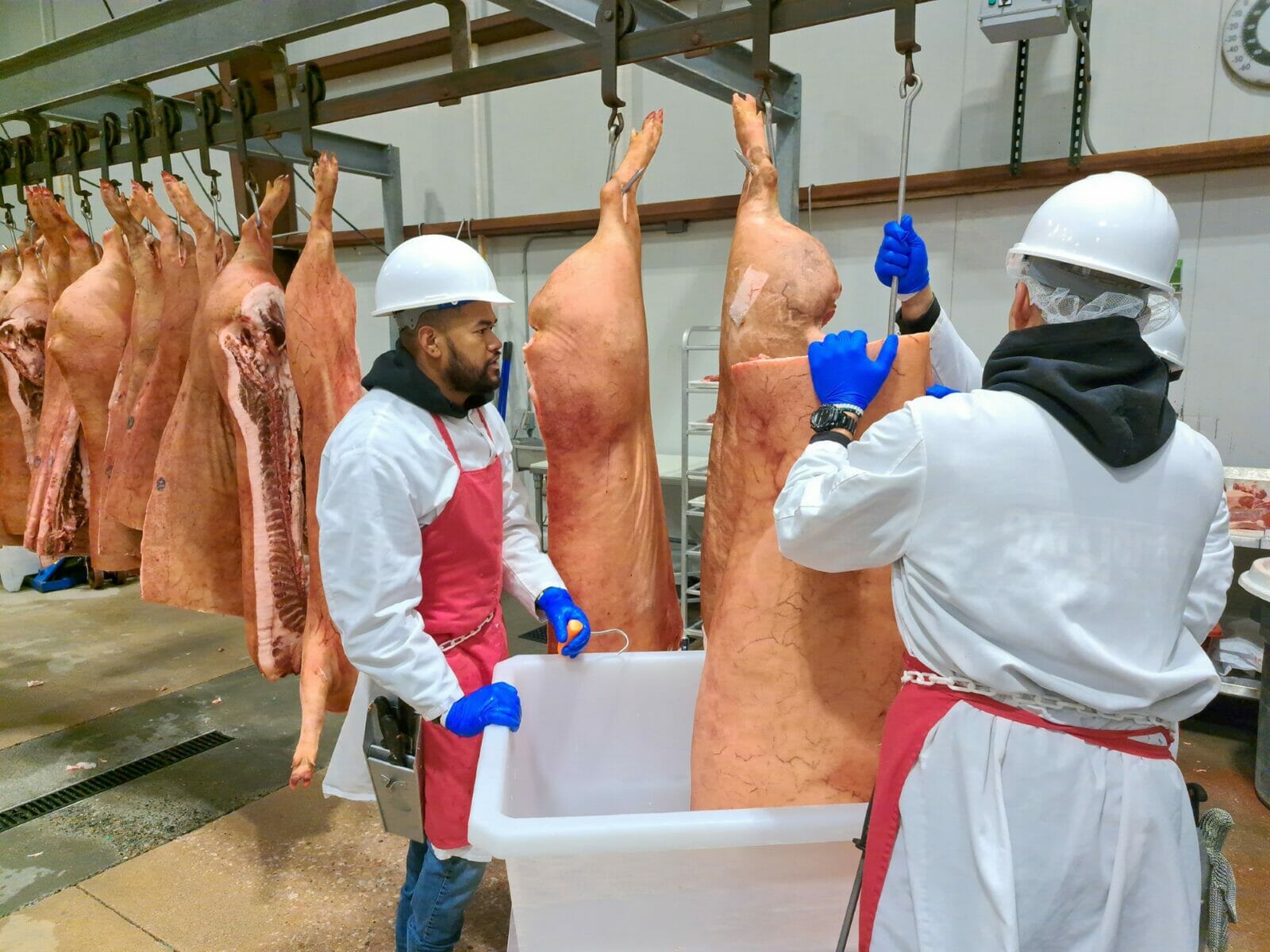
Smithfield supports the EATS Act, which Monroe said resolves “a growing patchwork of state-by-state regulations that make it difficult to keep food affordable.”
Monroe did not provide specific numbers as to how many Smithfield facilities were not compliant with Prop 12 regulations. But he did say the company has “established supply agreements for Prop 12 compliant pork. And we’re going to continue to engage our customers to expand the availability of compliant products.”
Not all pork goes to California. The National Pork Producers Council (NPPC) estimates California accounts for 12-15% of U.S. pork consumption. An August report by Animal Wellness Action claims this figure is exaggerated.
Regardless of how much pork is going to California, the need for compliance would likely require changes for producers that distribute across the country.
Aaron Popelka, the vice president of legal and governmental affairs for the Kansas Livestock Association (KLA), said because meat production is nationalized, it would be difficult to separate and track Prop 12 compliant pork from pork that could ship to the rest of the country.

“It becomes an unnecessary burden on commerce for something that has no science to it whatsoever,” Popelka said.
Popelka, who also raises cattle, said there is growing concern among livestock producers that if Prop 12 is in effect, California and other states will enact similar legislation that stretches to other industries, like beef and dairy.
“We think that’s the right role here for Congress to step in and make sure that if I produce pork or beef or dairy products in the state of Kansas that they meet Kansas standards and meet any federal standards, that we ought to be able to sell those things in all the rest of the states in the country,” Popelka said.
Groups representing livestock producers like KLA, NPPC and National Cattlemen’s Beef Association have voiced support for EATS.
These groups, along with Marshall, contend animal rights groups and folks who don’t understand the agriculture industry oppose EATS.
“These are radical animal rights activists who are leading this charge against us,” Marshall said in an interview with RFDTV.
Marshall’s office did not respond to requests for further comment, despite multiple calls, emails and form submissions.
While animal rights groups have spoken up against the EATS act, they are far from the only folks in opposition.
Mike Schultz, a Kansas cattleman and former pork producer, has seen firsthand the aggression that sows can have towards one another and the benefits of housing sows individually in crates at times.
What he doesn’t understand or agree with is the “top-down control” that would exist under the EATS Act.
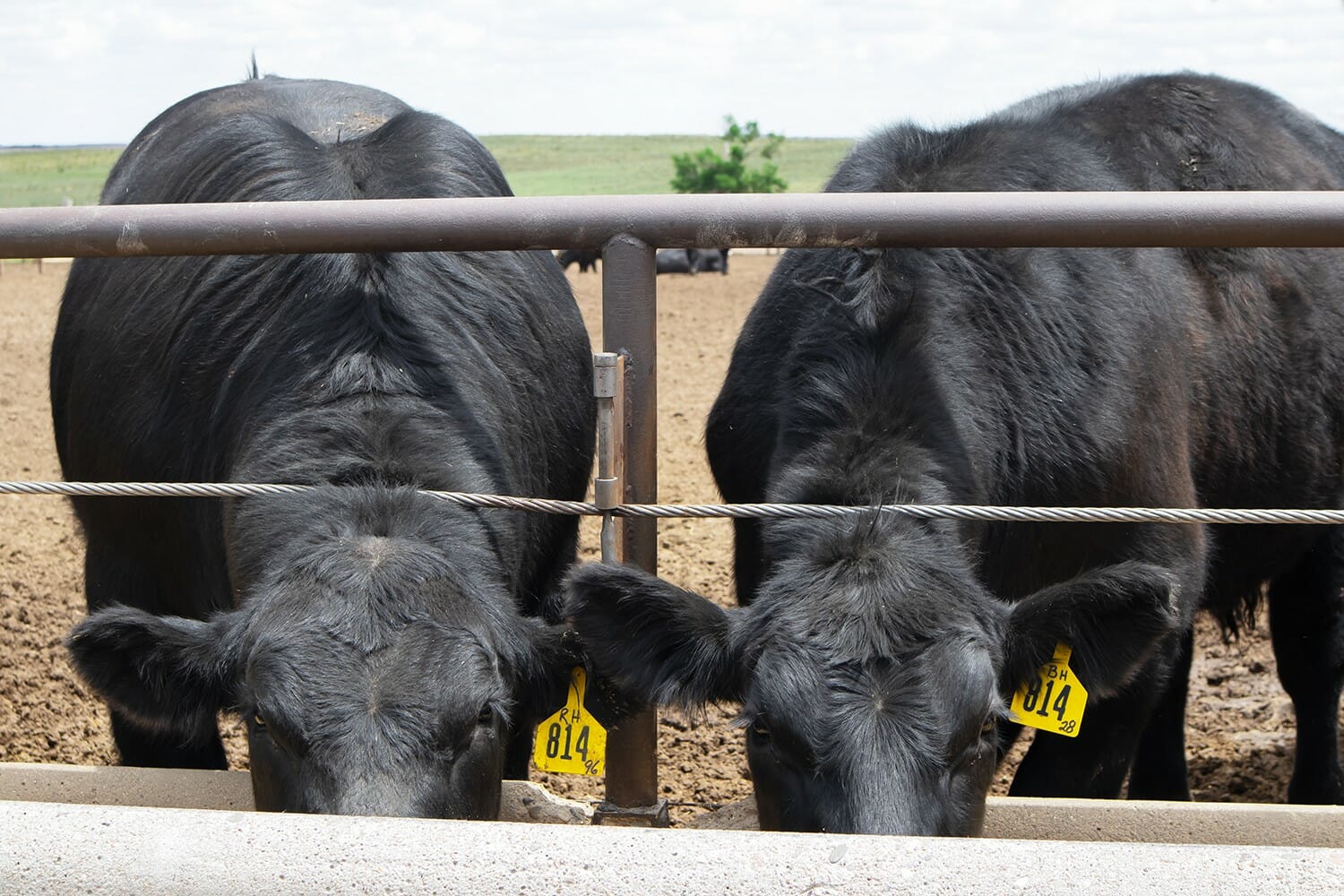
Beyond its Purview
“I’m not for top-down government operations,” said Schultz, who is also the vice president of the lobbying group Organization for Competitive Markets. “I think it ought to be from the local level, the state level and then the federal government.”
If folks don’t want to comply with Prop 12, he suggests they take it up with California rather than strip the whole country of its local control of agricultural production.
“I think all of us are really good stewards of our land, and our resources,” Schultz said. “I get it, there are people that are not, but look at each case individually. I don’t like people putting everybody in a basket, because we’re not all the same.”
Schultz said often when he talks to politicians about getting certain bills passed, they mention the “unintended consequences” that could arise. He turned the same argument against EATS.
“This bill is so wide — I’m telling you about forestry issues, I’m telling you about boating issues. There are issues in baby food … tuberculosis in cattle is another issue,” Schultz said. “I mean hell, it doesn’t even make sense why we would do that.”
A Harvard study from July 2023 on the EATS Act found similar issues with the bill.
According to the study, local laws affected by the EATS Act could include invasive pest and plant disease protections, fishing regulations, food quality and safety regulations, labeling regulations, narcotics laws, horse slaughter laws and more. The study also notes that the scope of affected laws is difficult to determine due to the broad definitions of the terms “preharvest production” and “agricultural products” used in the bill.
“The EATS Act defies basic notions of federalism and would circumvent decades of settled constitutional jurisprudence,” the study reads.
Further, it argues the EATS Act is unconstitutional because it would require Congress to “commandeer” states from enacting legislation for the health and welfare of its people.
“The language suggests that any product with an agricultural element, no matter how small, could fall under the definition of ‘agricultural products,’” the study reads. “Everything from breath mints to plastic bags, which may contain stearic acid from beef fat, might be considered ‘agricultural products.’”
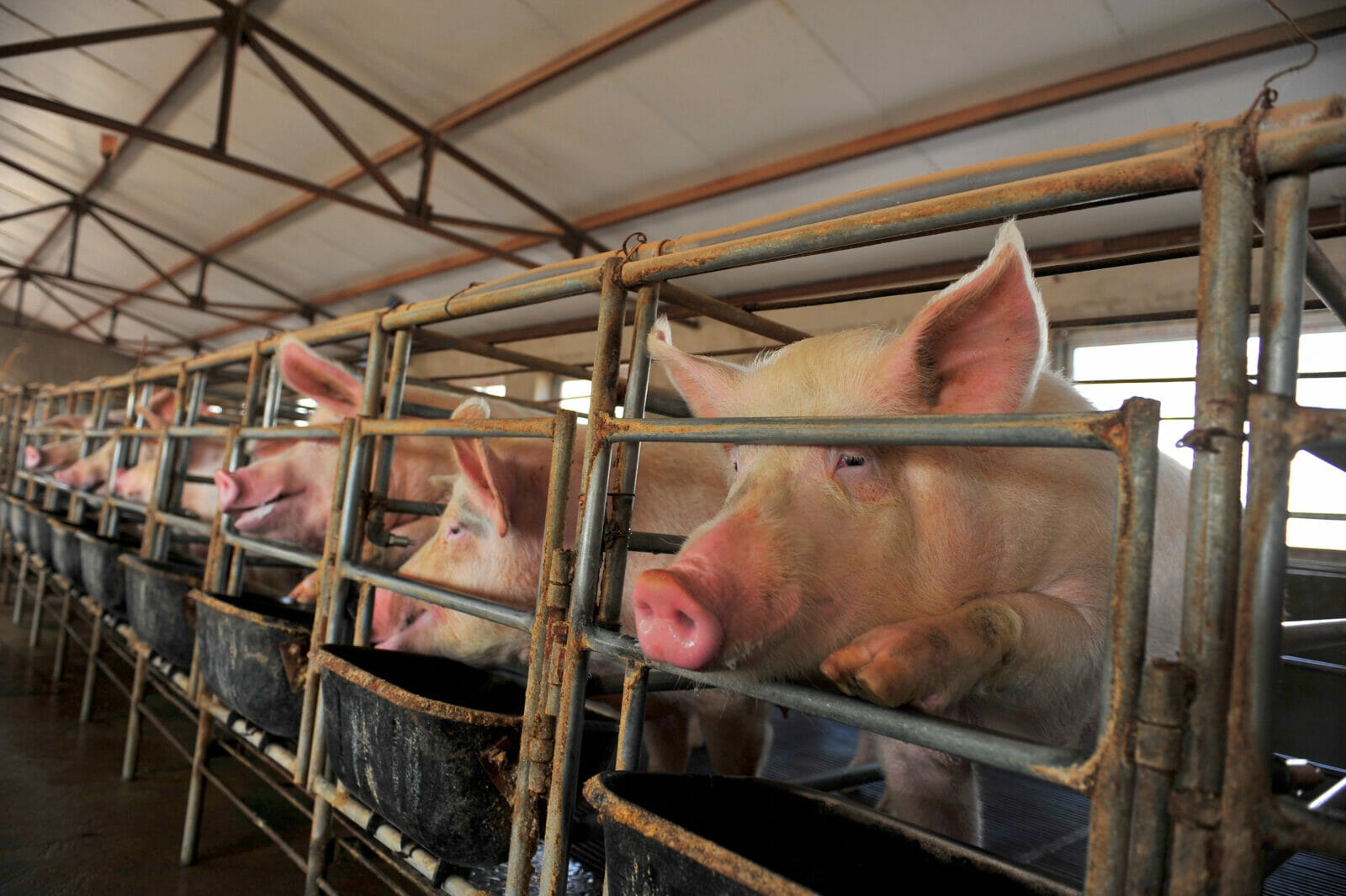
NPPC estimates Prop 12 compliance will increase production cost of pork by 9%.
Schultz believes the folks that stand to benefit from loosened trade restrictions are the big corporations, who already make it hard for small producers to compete.
“Small independent producers are not begging for (Marshall) to get the EATS Act passed,” Schultz said. “It’s because of Smithfield, it’s about corporate pork.”
Tim Gibbons has been fighting corporate control of the meat industry for years with his organization, Missouri Rural Crisis Center.
“The goal of these corporations, and then their mantra is, ‘If you don’t like it, you can move,’” Gibbons said. “If they can figure out any sort of federal legislation to allow that mantra to become more real, then they will do it. Reading the EATS Act, that’s what it seems like it’s doing.”
Gibbons isn’t surprised by the narrative from EATS supporters to “protect farmers” from Prop 12.
“That’s the corporate narrative,” Gibbons said. “They want to be able to do whatever they want, however they want, and they want to control the market at the expense of farmers, our property rights, consumers, our environment, our climate.”
Callicrate, who ranches in St. Francis, Kansas, compared the veil of the EATS Act to that of Missouri’s Right-To-Farm Amendment of 2014. While the act appeared to protect agriculture producers (granting them the constitutional right to farm and ranch in the state), Callicrate said the proposal was only in the interest of large corporate farms.
“They just keep coming back and trying to rule over all of us with this terrible model of food production that does not feed the world,” Callicrate said. “The EATS Act is all about an industrial global model that extracts wealth and concentrates wealth and gives us food that makes us sick.”
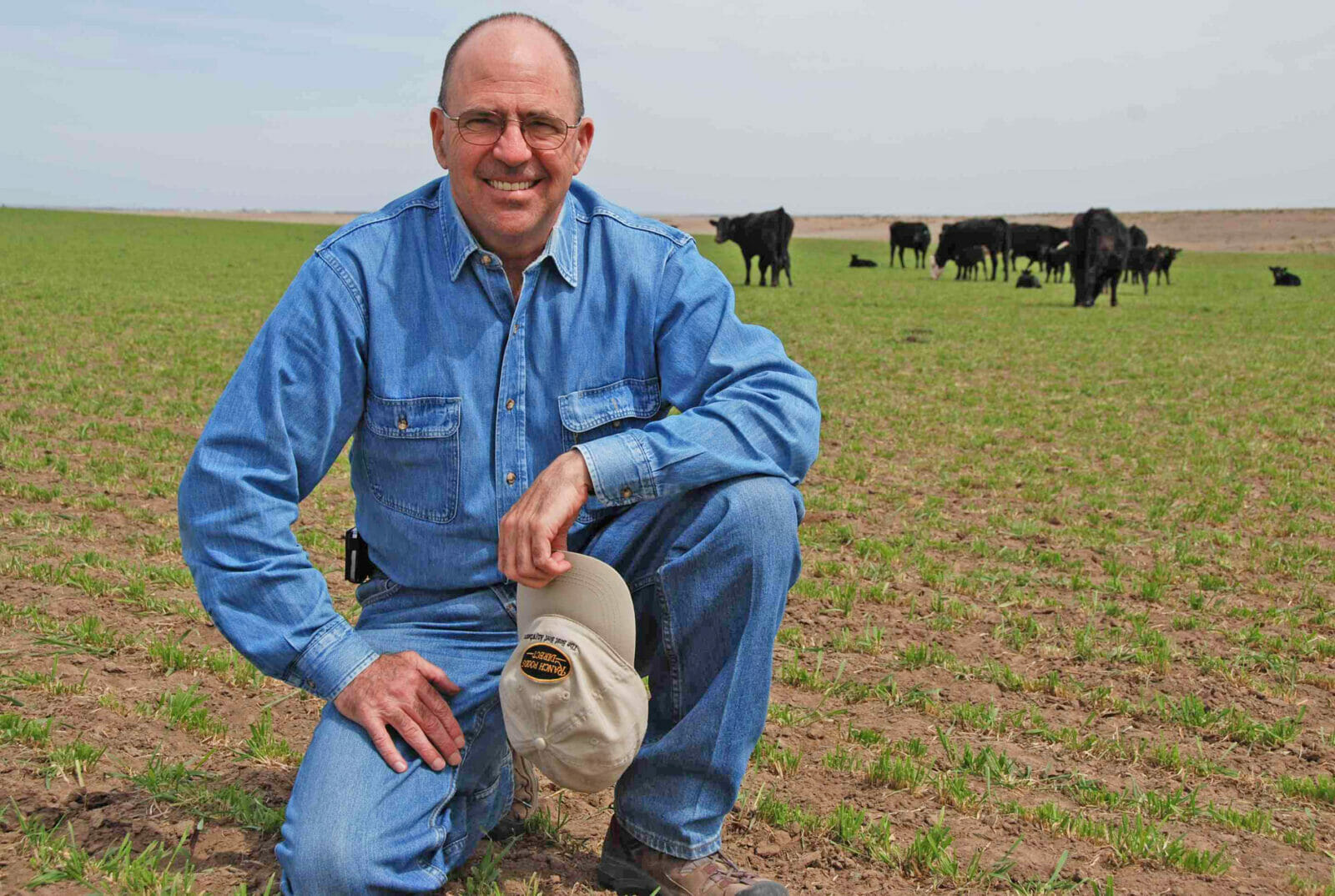
Fighting for Local Food Systems
Many of the folks opposing EATS are fighting for localized food chains.
That means more family famers and producers who grow, harvest, process and distribute to their communities rather than producing on a mass scale and selling to the world.
After 23 years of building his operation, supply chain and sustainable system, Callicrate believes he has the ideal, self-sustaining business at Ranch Foods Direct and Callicrate Cattle.
The manure from the cows goes back to the land as its only fertilizer. The livestock he raises goes to feed his immediate area. The livestock roam free and are never loaded onto a trailer to go to slaughter.
“It’s a circular economy as opposed to this extractive economy, which the EATS Act would promote,” Callicrate said.
Fifteen years ago, Callicrate added an on-farm slaughter facility to his operations, and he welcomes the public out to tour his facilities at any time.
“Our whole thing is about building local, regional food systems,” Callicrate said.
Callicrate argued that the big meat-packing corporations have the money and influence to persuade Congress. The smaller producers rely on local regulations for protection in the marketplace.
“When you pass an EATS Act, you’re basically taking away democracy,” Callicrate said. “You’re basically overpowering the vote of the citizen and forcing this kind of agriculture on everyone — and it’s not a form of agriculture that if people knew about it, that they would accept.”
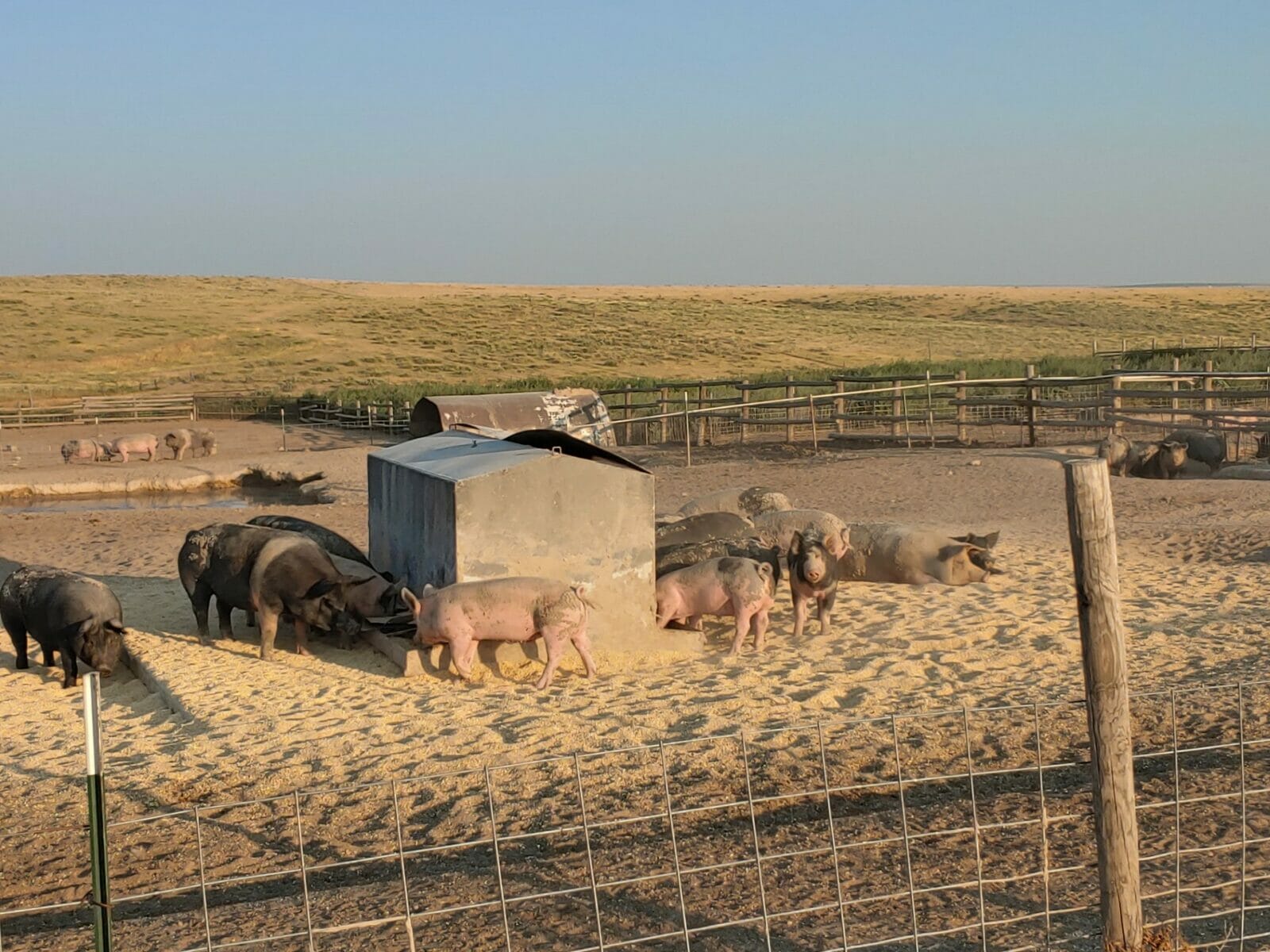
But it’s hard for the two models to exist at the same time. Industrial meat production is cheap and usually highly subsidized by the government.
A slew of research and data analysis show the majority of agricultural government subsidies go towards the large protein operations.
Callicrate said while the big beef packing companies can produce $2 per pound “pink slime,” it costs him $5 to produce a pound of domestic, hormone-and-antibiotic-free beef.
“And, without all these subsidies, we’re expected to compete with product half the price,” Callicrate said.
Callicrate would like to see his Kansas senator instead support policies that enforce Country of Origin Labeling, and the Opportunities for Fairness in Farming (OFF) Act, which ensures the mandatory “checkoff” fees producers pay are not going towards supporting a government policy or funding research with regards to a certain brand.
Across the state line in Missouri, Gibbons is fighting for the same things.
“The hog industry is, unfortunately, a perfect example of what can and almost necessarily will happen if we don’t strengthen the policies … that put our food system back in the hands of farmers and consumers, and out of the hands of a few multinational corporations,” Gibbons said.
This article has been updated from a previous version.
Cami Koons covers rural affairs for Kansas City PBS in cooperation with Report for America. The work of our Report for America corps members is made possible, in part, through the generous support of the Ewing Marion Kauffman Foundation.


